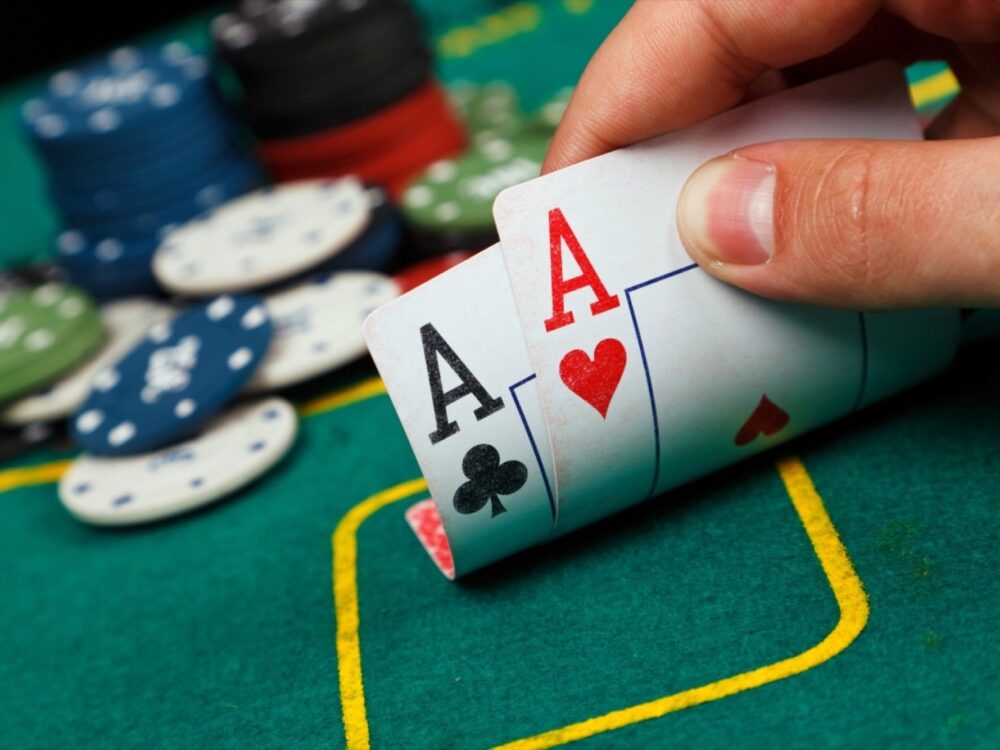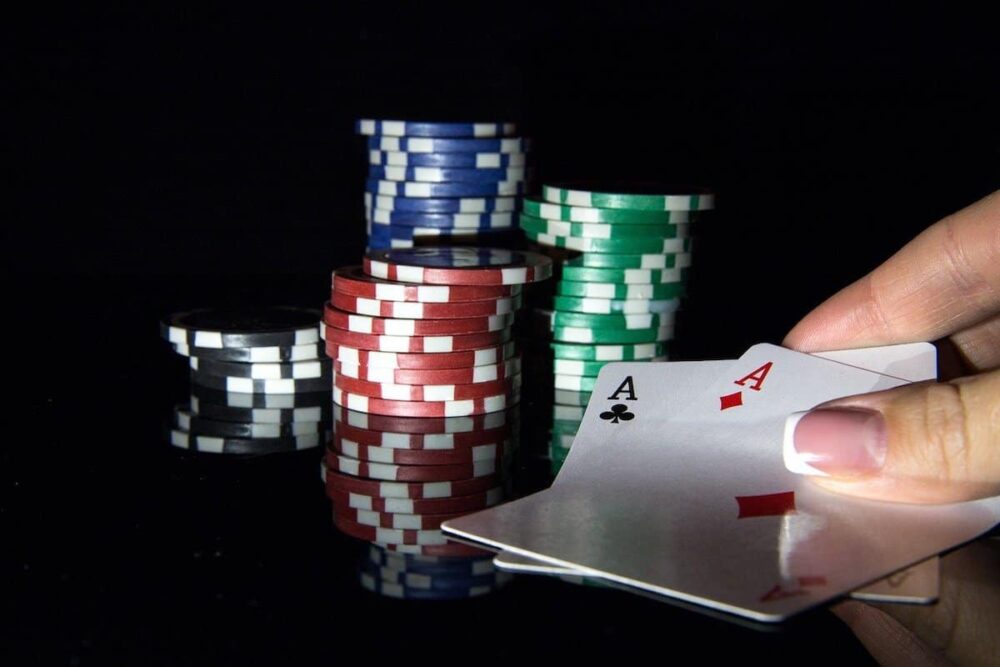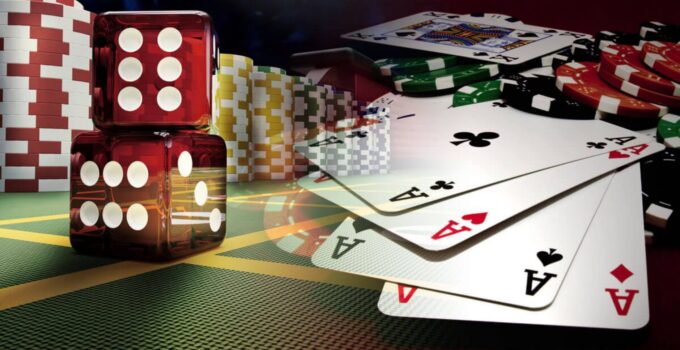If you want to improve your risk management skills, look no further than a casino game like poker! Sure, there’s the allure of playing for money, but what most people don’t realize is that the skills you learn from playing can be applied in other settings. In this blog post, we’ll explore the ways poker can help you make smarter decisions and manage risks with ease.
Understanding the Basics of Poker
In order for you to successfully use poker as an effective tool to improve your risk management skills, it is important that you are familiar with the basics of the game.
Poker, like the games offered on Mansion88, is a card game where players bet on the relative value of their hands. It includes sets of community cards, called “the board”, which may be used by all players in combination with two hidden cards (the “hole” cards). In most variants of poker each player at the table takes turns in bidding amounts and if no one challenges or raises the bets then winners are declared based on the strength of their hands.
The overall success of your game plan in Poker depends on a combination of strategies and skills related to:
- Reading your opponents
- Evaluating bluffs
- Calculating pot odds
- Understanding how different players will react during various situations
It also requires you to assess risks and make decisions with incomplete information. The ability to apply these strategies implies an inherent understanding of probabilities within the poker deck, understandings that can translate into better risk evaluation abilities outside the world of gambling.
Developing a Strategy for Risk Management

Source: businessinthenews.co.uk
Developing a strategy for risk management is an important part of any successful casino game like this one. By managing risk, you can minimize your losses and maximize your winnings. It’s a good idea to develop a plan to guide how much money you are willing to spend and when you are equipped with the right strategies, this decision should be relatively easy to make.
One of the most important strategies for controlling your risk is learning when it’s time to cut your losses and walk away from the table. Knowing when to fold or stay in can mean the difference between walking away from a game with only minimal losses or bigger ones if you take risks that don’t pay off in Poker.
Another key strategy for controlling risks is diversifying your investments across different games or tables. Instead of putting all of your chips into one pot, try spreading them out into smaller amounts at each table or game. This can help reduce the chances of losing too much money on one bet if things don’t go as planned.
By learning how to budget properly and use risk-reward tactics, Poker can improve your overall financial acumen and understanding of risk management while also providing an enjoyable form of entertainment. With some luck on your side, even more substantial winnings are possible!
Applying Risk Management Principles to Poker

Source: entrepreneur.com
Risk management is an important skill to possess, especially in the business world. While playing casino games can be a form of entertainment, they can also provide some level of insight into how risk works in different situations. Games like this one are an excellent way to practice and apply risk management principles in a low-stakes setting.
It’s important to remember that gambling is not only about luck – it also involves skill and probability analysis. For example, when making a decision at the poker table, players must be aware of both the potential risks and rewards associated with each choice. This requires careful consideration and sound analysis skills as well as intuition—all of which directly relate to risk management principles outside of this game setting.
Additionally, disciplined bankroll management is essential for successful poker players. Players should not invest too much money when going after higher stakes or bigger pots as this can result in larger losses than anticipated. It’s about finding balance by mitigating risks with calculated strategies that involve paying attention to details such as the number of opponents remaining at the table or what kind of cards are still in play.
As it is played over and over again each round, utilizing these strategies can help you gain valuable practice with risk assessment skills as you work your way through various scenarios and decisions. All-in-all, there’s no better way to hone your risk-management abilities than by playing a game like poker!
Exploring the Benefits of Poker for Risk Management

Source: supplychaingamechanger.com
Playing it can improve your ability to manage risk. With the game’s simple rules and drawn-out betting action, it offers a convenient way to learn about making decisions based on statistical data and other forms of calculative information.
Poker is a form of gambling, and like any risk taking activity, success depends on the ability to objectively assess probability and weigh potential outcomes. The game provides an excellent opportunity to learn how to judge probabilities with accuracy. Players must develop the instinctual ability to calculate optimal mathematical decisions based solely on incomplete knowledge. They must also understand the crucial concept of expected value, considering both losses and rewards in their strategies. All these skills are essential for successful risk management in various fields such as finance, insurance, healthcare and security analytics.
The development of such skills would be easier with poker for two main reasons:
- Firstly, as opposed to more sophisticated forms of gambling like roulette or slot machines which have complex payouts; poker only has two factors affecting payoff – hands lost or won with others participating in the game (including you). This simplifies probability calculations significantly, improving players’ chances of understanding the concepts underlying risk management better than other games would allow them too.
- Secondly, since each one’s fate is intertwined with others at a poker table; players can learn how their opponents potentially respond in certain situations when it comes to being unsure or taking calculated risks – highly beneficial lessons that can be applied off the table too!
Conclusion
In conclusion, playing it can be a great way to improve your risk management skills. The best strategies often involve careful decision-making and the ability to assess your risks with precision. This type of skill development is invaluable in our current business world, where unpredictability and risk are often a factor in nearly every decision you make.
By taking the time to learn and practice game play that involves strategic thinking and risk assessment, you can feel more prepared when facing tough business decisions in life.




